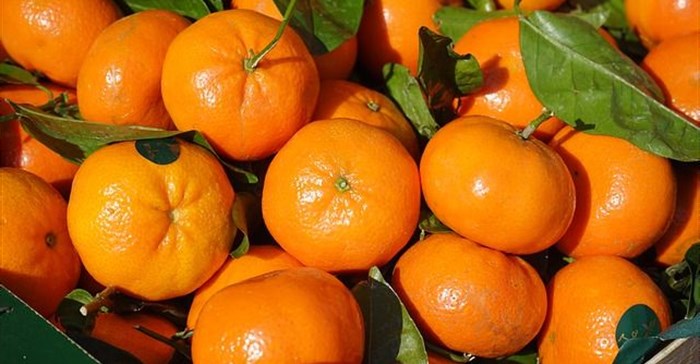
Top stories






More news


Marketing & Media
Ads are coming to AI. Does that really have to be such a bad thing?














The reasons for demand are many and varied compared with supply, which should be quick and simple. But it's not simple at all. Import tariffs, in place to protect domestic fruit producers, mean that Asia is experiencing a shortage of supply from citrus-producing countries in the southern hemisphere.
The way around that problem is a trade agreement, but SA has the lowest number of trade agreements among competing southern hemisphere suppliers to Asia.
Exacerbating this are setbacks such as SA's exclusion from the Vietnamese market due to a minor administrative error. When applying for continued market access during Vietnam's revision of its plant health regulations, SA stipulated the generic "citrus" instead of specifying the types of citrus for export. This resulted in all citrus fruit being excluded from the permit list. It is exasperating. The only potential meaningful trade agreement SA's citrus industry has is the Southern African Customs Union Plurilateral Agreement with India, which has been discussed for many years now without much progress.
SA is required to negotiate trade agreements with third parties as a bloc because the country is in the Southern African Customs Union with a common external tariff.
Southern hemisphere countries such as Chile, Peru and Australia enjoy trade agreements with up to nine Asian countries - a grave illustration of SA's problematic position. These countries enjoy partial and even free trade agreements, which are invaluable when it comes to maximising opportunities in a given market. They enjoy significant savings and are spared a lot of the bureaucracy that SA has to endure.
The absence of required trade agreements - compounded by restrictive import tariffs - makes seamless exports to countries like China, Indonesia, Japan, South Korea, Philippines, Thailand and Vietnam much more difficult.
Like any progressive organisation, the Citrus Growers' Association of Southern Africa has a keen focus on the retention of markets and the continued quest for new ones.
Last October, Fruit SA (of which the association is a founder member) signed a memorandum of understanding with Wang Junbing, the secretary-general of the China EntryExit Inspection Authority and Quarantine Association.
The citrus industry hopes that this will make for more stress-free export to China, especially when it comes to the required paperwork. China's mainland and Hong Kong are the biggest importers of SA's citrus fruit in Asia, with Hong Kong and mainland China importing 120,000 tonnes of citrus fruit annually.
The Asia Fruit Logistica trade fair is an annual reminder of the vastness of the Asian fresh fruit market and the multitude of opportunities ripe for the picking. But these can only be fully maximised after trade barriers have been mitigated through appropriate trade agreements and entry negotiations. The government has been a great support to the local citrus industry and it was heartening to see a Department of Trade and Industry delegation at the 2017 Asia Fruit Logistica.
But we need to up the ante on initiating and concluding trade negotiations that will make for ease of trade. The Citrus Growers' Association's relationship-building and maintenance efforts with Asian countries cannot replace robust collaboration and effective communication between governments and industry to increase market share in Asia.
In 2017, SA has exported 1.8 million tonnes of citrus, with 300,000 tonnes destined for the Asian market. This makes the country the biggest southern hemisphere exporter of citrus to the Asian market by far, and one of the leading exporters of fresh fruit to this market.
Ordinarily, this would be ample reason for the South African fresh fruit industry to celebrate and even rest on its laurels. However, given our net export to Asia relative to our capacity, we've hardly scratched the surface.
Agriculture was recently hailed the fiscal hero that - as a major contributor - helped pull SA out of its technical recession, resulting in the country's 2.5% GDP growth in the second quarter. The sector grew 33% during the same period. As a supplier of 875,000 jobs, according to the Agricultural Business Chamber, the agricultural sector is integral to national economic growth.
As a significant player in the sector, the citrus industry's economic performance hinges heavily on export revenue. This is exactly why we cannot afford to have tardiness around establishing beneficial trade agreements get in the way of growing our exports to the lucrative Asian market.
The Citrus Growers' Association, which clocks 20 years of experience, represents approximately 1,400 producers of export citrus throughout Southern Africa (including Zimbabwe and Swaziland). It is also home to the R17bn citrus industry, with 92% of revenue from exports. This revenue has enabled the industry to put bread on the tables of 71,500 South Africans, through on-farm jobs and many more in downstream activities. Imagine how much more we could do with key trade agreements in place.
On its own, the citrus industry is a small entity jostling for a piece of the fiercely competitive Asian market. But with more interventions and support from the government, this is an opportunity that can boost the industry and deliver sustainable jobs and opportunities.
Until then, our efforts are about as strategic as a mandarin tossed in the river.
Source: Business Day

For more than two decades, I-Net Bridge has been one of South Africa’s preferred electronic providers of innovative solutions, data of the highest calibre, reliable platforms and excellent supporting systems. Our products include workstations, web applications and data feeds packaged with in-depth news and powerful analytical tools empowering clients to make meaningful decisions.
We pride ourselves on our wide variety of in-house skills, encompassing multiple platforms and applications. These skills enable us to not only function as a first class facility, but also design, implement and support all our client needs at a level that confirms I-Net Bridge a leader in its field.
Go to: http://www.inet.co.za